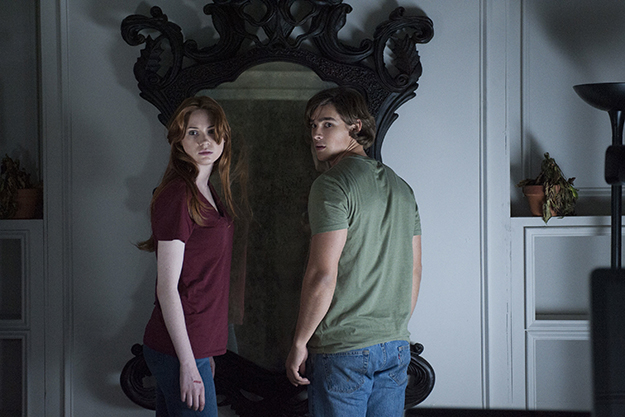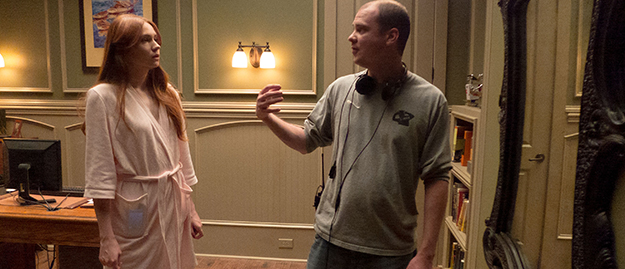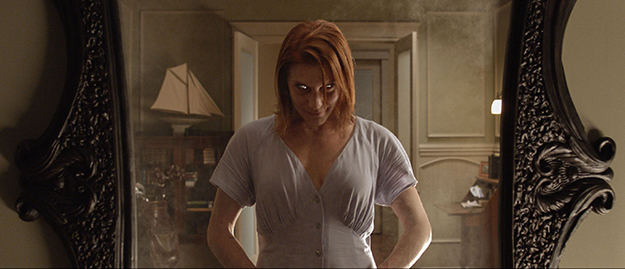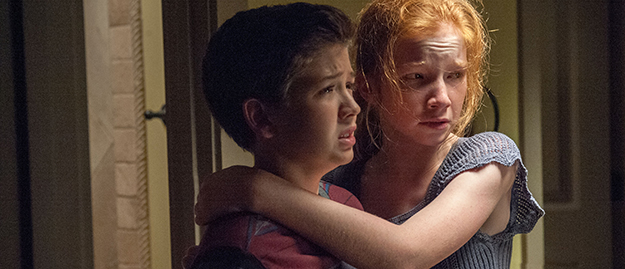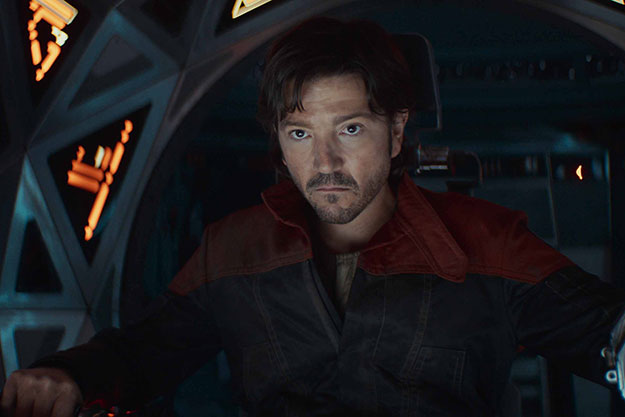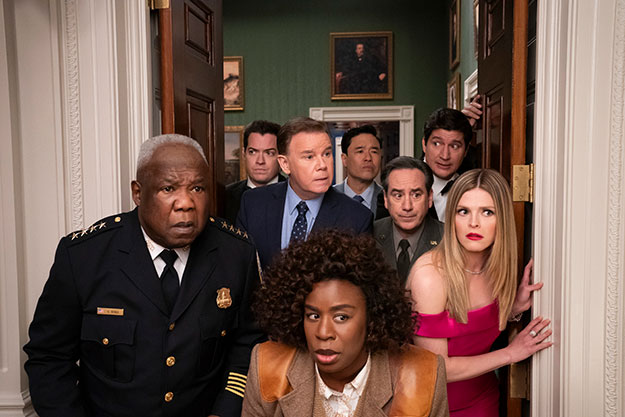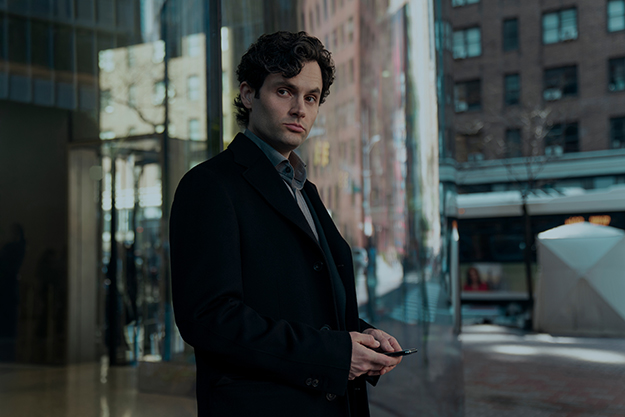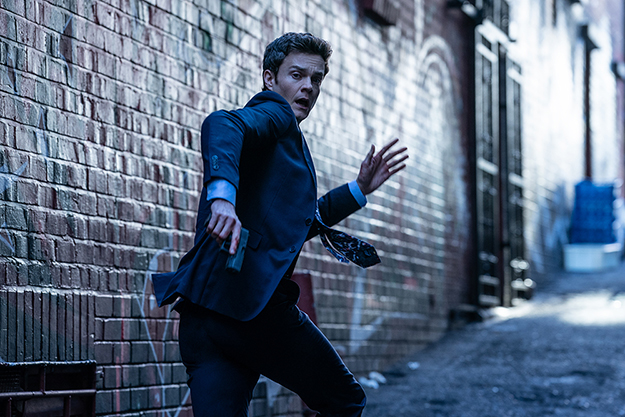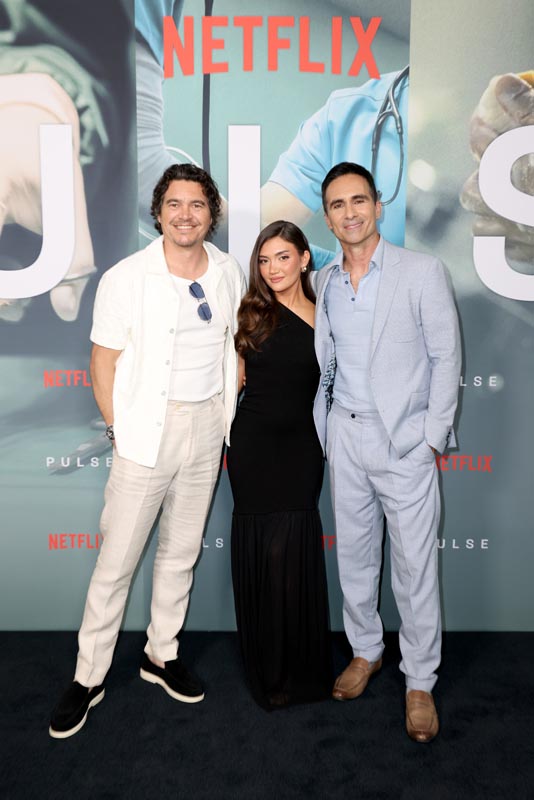Director Mike Flanagan and Cast Talk to Us About ‘Oculus’: A New Kind of Terror
“Oculus” introduces a new kind of terror: a supernatural Lasser Glass mirror. The idea for the film came from a short film of the same name that director, Mike Flanagan, wrote and directed back in 2005.
In “Oculus”, an antique mirror holds a malevolent supernatural force that infects the mind of the viewer, leading to paranoia, distorted visions and eventually possession. The mirror’s new owners, adult siblings Kaylie and Tim, are struggling to rebuild their relationship after the violent demise of their parents ten years earlier. Kaylie suspects that the tragedy was caused by that mirror and gets closer to the truth when history happens to repeat itself.
This “supernatural mirror” was designed by production designer Russell Barnes and Bruce Larsen, said director Mike Flanagan at the recent press conference. “I loved the design created by Russell Barnes and Bruce Larsen. We wanted to design our own thing, to come up with something that was going to be impactful, more organic and kind of have more living qualities to it. There is something awesome that they did with the mirror that when you get really close to it, the frame has this variety of humanly forms being all interlocked and I thought it was really cool for the movie,” Flanagan explained. “Also, having the idea that this is an organic creature, that it was digesting the souls of the people in contact with and we can say that the frame is actually growing suddenly over the years as if feeding, kind of looking at it as a living thing, was really important for the design,” he continued.
The mirror is almost undestroyable and we wanted to know the reason it couldn’t be destroyed as it would if it were a normal mirror and Flanagan explained to us why, “The glass of the mirror did break when something happens to the character of Alan. The reason that was able to happen, but the kids couldn’t when they hit it with the golf clubs, is that when they are attacking it, their perception of what they are doing is able to be control in influence. Alan is not doing anything that the mirror can mess with. Any trick in place in his head is not gonna change the trajectory of his head after what happens to him. When we were almost finishing the script we needed to work on the breakability issue. If the mirror's defense mechanism is what it does to your perception, it will keep it safe to an extent but not forever.”
Not only is it hard to destroy, but it also has the power to reflect people’s insecurities and their fears, haunting the characters played by Karen Gillan (Kaylie Russell), Rory Cochrane (Alan Russell) and Katee Sackhoff (Marie Russell) and they tell us what they thought of their characters after they read the script and what were their struggles playing them.
“Something that I loved was how the script was written… in a way that was devoted to these characters, so we really see them develop before things start happening to them. You can see they were actually invested and cared. And I really liked the scares, which really excited me and I just loved the character, I thought she was really interesting,” explained Gillan.
Katee Sackhoff talked about her character in the film, “Very similarly in the sense that I really loved the fact that we saw on Marie this vulnerability she had and this obsession she had with mirrors, before the mirror actually took her. And I wanted to really make the audience love this family and understand this family and then ultimately feel heartbroken for these children and what they had to go through. Mike just did a phenomenal job on kind of pulling you on this slow ride that was engaging the whole time and just like the last 30 minutes just punch you in the face repeatedly.”
Rory Cochran added his thoughts about the family dynamic in this story, “I appreciated the family dynamic that could happen without the supernatural forces that were surrounding this family and if you took that away you could still have this family drama.”
“Oculus” takes place in the past and present, often simultaneously, something that got difficult to pull off in the editing process of the film. “The breakdown structure, was something taken out on the first outline for the feature treatment and we always knew that it was gonna be something really difficult to pull off. But the idea was to take these two stories, break them in a way that the transitions are getting tighter and tighter, bouncing back more and more frequently, hopefully to the point, that the two stories bleed together, in a way that we can’t tell the difference any longer and the characters can’t tell the difference any longer,” explained Flanagan.
To finalize, Flanagan said something interesting and it's that he is an enthusiastic member of the horror genre and that when he wrote the script for “Oculus” he wanted to make sure that the fans, after watching the film, felt that their intelligence was respected by the story. “The fans of the horror genre are the most enthusiastic out there. As one of them, I sit, I analyze and take it very seriously. As a writer it’s really tough because you don’t want to leave a hole outside. I would go back and fourth to make sure that the characters in the movie would react and act the way an intelligent viewer would, that was very important.”
Oculus in theatres April 11!






